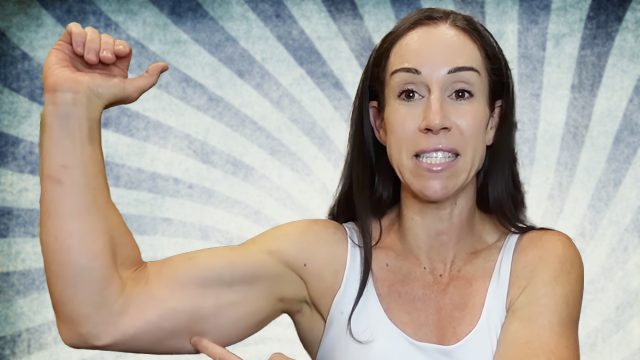10 Best Protein Foods Nutritionists Eat to Lose Weight
Struggling to stay full while cutting calories? You're not alone. Getting enough protein while maintaining a calorie deficit can feel like solving a puzzle. But fitness and nutrition coach Michelle Roots, a certified kinesiologist, has cracked the code with her top protein-rich foods that keep you satisfied without breaking your calorie bank. Read on to discover the foods that could transform your weight loss journey.
Why Your Body Needs Protein
"Proteins are building blocks in the body," says Harvard Health. "They make up bones, cartilage, muscle, blood, skin, enzymes, hormones, and vitamins. They're essential for growth and development, repair and build cells and tissue such as muscle, and play an important role in body processes such as blood clotting, fluid balance, and the immune response."
How Much Protein Do You Really Need?
Michelle suggests aiming for "0.7 to 1 gram of protein per pound of body weight when in a calorie deficit." This aligns with scientific guidelines – Harvard Health notes that while the basic recommended dietary allowance is 0.36 grams per pound, active individuals and those over 50 may benefit from higher intake, up to "2 grams per kilogram" for optimal results.
Your Go-To Lean Protein: Chicken Breast
"Chicken breast is absolutely a staple in my household," says Michelle. "With about 18 grams of protein per 100 grams and very low calories, it's versatile enough to add to anything."
"Lean meats such as chicken are excellent sources of high-quality protein as well as important nutrients like iron and zinc," says Harvard Health.
Ground Turkey: The Versatile Protein Source
Ground turkey is another favorite in Michelle's kitchen. "You can throw it into pasta meals, make burger patties, or use it in stir-fries and tacos," she explains. With nearly 20 grams of protein per 100 grams, it's a lean option that keeps you within your calorie goals.
Eggs and Egg Whites: Complete Protein Power
Michelle emphasizes the protein power of both whole eggs and egg whites. Harvard Health confirms that "eggs contain all of the essential amino acids, making them a complete protein source. Eggs are also a source of vitamins, minerals, healthy fats, and antioxidants." Michelle adds that one egg provides about 7 grams of protein for just 72 calories.
RELATED: Nutritionist Reveals the 6 Morning Habits That Helped Her Lose 20 Pounds
Salmon: Heart-Healthy Protein
"Salmon gives you about 17-18 grams of protein per 100 grams for only about 100 calories," Michelle shares. Harvard Health adds that "fish like salmon are not only rich in protein but also contain omega-3 fatty acids, which are beneficial for heart health."
Plant-Based Protein Champions: Lentils and Beans
Michelle recommends lentils for those seeking plant-based options. Harvard Health supports this choice, noting that "beans, peas, and lentils are excellent sources of protein as well as fiber, folate, potassium, iron, and zinc." Michelle adds that one cup of lentils provides 18 grams of protein for only 230 calories.
RELATED: Weight Loss Coach Finally Lost 50 Pounds Using These 5 Cheat Codes
Dairy Protein Powerhouses: Greek Yogurt and Cottage Cheese
Michelle swears by plain Greek yogurt and cottage cheese. "A 150-gram serving of Greek yogurt offers 15 grams of protein for just 80 calories," she says. Harvard Health confirms that "dairy products like milk, cheese, and yogurt are rich in protein, calcium, and other essential nutrients."
Quick Protein Solutions: Edamame and Canned Tuna
"Edamame is perfect for quick snacks or salad toppers," Michelle suggests. Harvard Health notes that "soy products such as edamame are good sources of protein, especially for vegetarians and vegans." For a concentrated protein source, Michelle recommends canned tuna, which packs 30 grams of protein per can for only 120 calories.
Smart Supplementation: Whey Protein
While not technically a whole food, Michelle includes whey protein in her recommendations. "It helps me increase my protein intake, supports workout recovery, and serves as a healthy snack between meals," she explains. A typical serving provides 35 grams of protein for about 150 calories.
RELATED: Woman Drops 22 Pounds Using This 10-Minute Morning Walk Strategy
Balancing Your Protein Sources
Harvard Health says that "for optimal health and nutrition, you should emphasize plant-based protein and protein from a variety of sources." This balanced approach ensures you get all essential amino acids while maintaining a healthy, sustainable diet that supports your weight loss goals. And if you enjoyed this article, take advantage of these 20 Superfoods for People Over 50.





